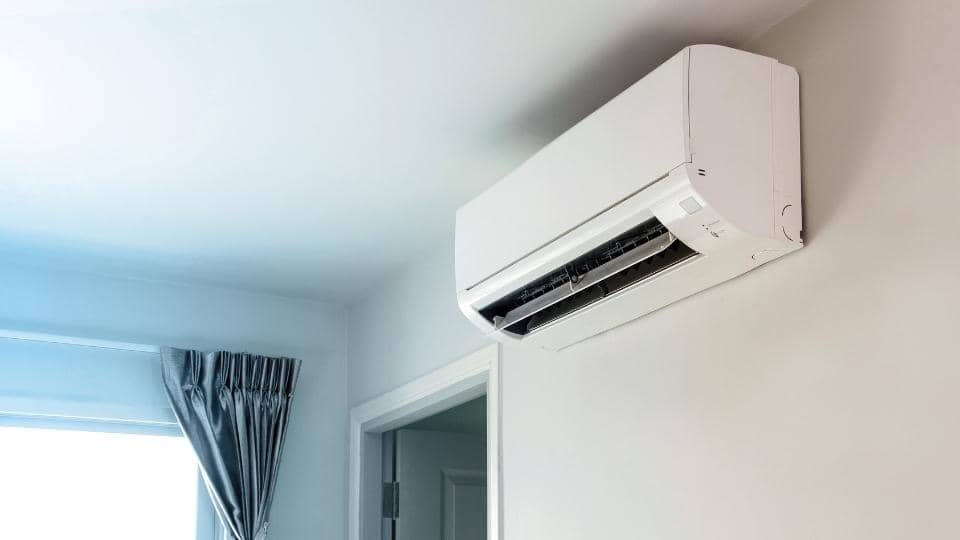How Long Can a Landlord Leave You Without Air Conditioning?
When you get back to your rented apartment from a long day at work in the summer evening and discover that your air conditioner isn’t working, I know how frustrating it can be. You may wonder how long your landlord can legally leave you without air conditioning.
In most cases, landlords are required to provide and maintain livable conditions in their rental properties. This generally includes ensuring the property is safe, clean, and free of health hazards. When it comes to air conditioning specifically, there isn’t necessarily a hard and fast rule.
In general, though, if your air conditioner isn’t working and it’s causing you discomfort, your landlord should take action to fix the issue as soon as possible. You may have grounds to file a complaint or even break your lease if they don’t.
In this post, I will discuss your rights as a tenant if your landlord leaves you without air conditioning for an extended period.
How Long Can a Landlord Leave You Without Air Conditioning?

The answer to this question depends on a few different factors, but generally speaking, a landlord should not leave you without air conditioning for an extended time.
In most cases, landlords should not take more than 10 days to fix an air conditioning issue. This period can be even shorter in some cases, such as health and safety issues.
There are some circumstances where it may be acceptable for a landlord to take longer to fix an air conditioning issue. For example, if the problem is with the building’s central air conditioning system, the landlord may need to coordinate with other tenants to make repairs.
Tenancy Laws in California and Air Conditioning
According to Tenancy Laws in California, landlords are not required to provide AC. If your rental home had functioning air conditioning when you moved in, the landlord might be obligated to cover the expense of repairing it, depending on the type of AC and how it was damaged.
Even though your lease agreement mentioned air conditioning, landlords don’t have to provide it. At the same time, some landlords do provide what the law terms “optional cooling unit” to their tenants as a part of the lease agreement.
In this instance, unless the lease specifies that the landlord is responsible for repairs, you will be responsible for any repairs since it is an optional facility and not part of the lease terms.
Another aspect that needs to be considered is how the unit was damaged in the first place. If it’s included in your lease agreement and it broke down because of typical wear and tear or because the landlord neglected their duties, according to the law, they have to pay for any necessary repairs.
In this case, the law allows them at least 30 days to make repairs before any legal action can be taken against them. This period starts when you notify them about the issue in writing.
If the tenant or their guests cause any damage to the unit, then they are responsible for repairing it.
What to do if the landlord doesn’t listen?
If you are without air conditioning for an extended period of time, you may want to consider taking action. You can start by contacting your landlord and asking them when they expect to have the problem fixed.
There are a few other things you can try according to the law depending on the situation:
Cancel your Lease Agreement
If your landlord is not taking action to fix the air conditioning issue, you may be able to cancel your lease agreement. This is typically only an option if you have a written lease agreement.
In most cases, you will need to give your landlord written notice that you are canceling the lease agreement. The amount of information you need will depend on your lease agreement’s terms.
It would be best if you also were prepared to move out to another property as soon as you cancel your lease agreement.
Repair and Deduct Rent
If you cannot cancel your lease agreement, you may be able to repair the air conditioning issue and deduct the cost of repairs from your rent.
To do this, you will need to hire a qualified contractor to make the repairs. Once the repairs are made, you will need to provide your landlord with a written notice that includes the cost of the repairs.
It is important to note that you should only repair and deduct if the air conditioning issue makes the property uninhabitable.
Please keep in mind that the repair cost must not exceed one month’s rent payment.
In case AC needs to be replaced, it will most likely cost more than one month’s rent. In this case, you can try taking legal action against your landlord. This is typically a last resort option, but it may be necessary if your landlord refuses to take action to fix the air conditioning issue.
If you were to spend more than one month’s rent on a faulty air conditioner, you should not do so because there is no assurance that you will be reimbursed for the full amount if it goes over one month’s rent.
You should also never withhold your rental payment since doing so would violate your agreement and endanger any rights you may have.
Conclusion
Whatever action you decide to take, it is important to document everything. This includes keeping records of all communications with your landlord, as well as any repairs that are made.
It would be best if you also remembered that taking legal action against your landlord can be long and costly. If possible, it may be best to try to resolve the issue through other means first.






